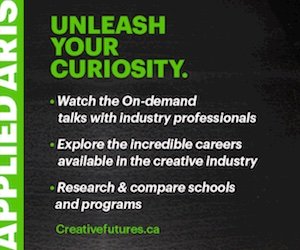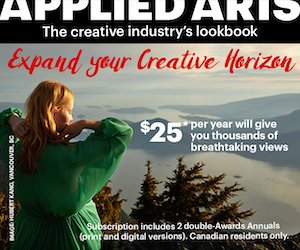Guidance
Job Prep For Ad Grads
By Brad Monk
To get my first job as a copywriter in this business, I had almost 100 interviews. I met with anyone that would see me. Not just creative directors, but writers, art directors, producers…anyone. If they worked at an agency, I’d try to get in to meet them. I can’t even imagine how bad my first portfolio must have looked. I literally cut pictures out of magazines and wrote headlines against them.
One thing that didn’t help was that many people who looked at my book just nodded and said, “Great…great...” when it would have been a lot better if they’d said, “This is bad.” The more people I met with, the more I began to understand that the ideas in my portfolio needed work—and that it was my job to keep working on it until it was good enough to get a job.
So you’ve finished your program and you have a “book” or a website to show what you’ve got and you’re ready to meet some people. What could possibly go wrong?
I see as many interns and hopeful juniors as my time allows. Maybe it’s because I’ve been there myself and I know how hard it is to get that first break. Even though the schools are doing a better job than ever to get young creative minds cooking, there’s still a lot to learn to make your interviews successful.
First off, don’t think that just because you’ve made a portfolio your job is done. I’m never that thrilled looking at a book that’s entirely school assignments. For one thing, this work is mostly “group think” and the person you are meeting wants to see what you can do. I would suggest you split your book in half. Show some of the work you did in school and then show some work you’ve done on your own. Create some ads for something you’re passionate about, like cooking or motorcycles or a gun store—something you see opportunity in. Give it a voice or an attitude that shows you know how to make a statement for a product or service.
Sometimes, it’s a good idea to work with some ads that already have a great tone or campaigns that you love and show that you can write an ad that’s just as good as anything they’re doing. Another way to go is to make an ad for a brand that seems to have no idea what they’re doing and give it a look and feel that you think is great. There are no rules for spec work other than your desired consumer response—the person who sees your work says, “I would love you to come and work at my agency.”
Second, if you get a few people saying something in your book isn’t great, it probably isn’t. Get rid of it. I always say, if you’re looking for a job that has you creating work everyday, you should start creating work everyday for yourself. Don’t kid yourself that an ad in your book that keeps getting pooped on will someday fool someone and you will get the job. Just because you love it doesn’t mean it’s going to help you get a job. It’s not always easy to get an interview with a creative director, so the time you have to make an impression is limited. Don’t waste it showing work you don’t think is great. Your book is only as good as your worst work, so keep beating it up until it’s hard to find a weak link in the chain.
The best advice I ever got: Don’t look at a bad ad and say, “I can do better than that.” Look at great work and try to do better than that. Keep looking at the award show books and the internet to see what’s popular and what great ideas look like.
And don’t roll over easily when you’re asked about your work. You need to be able to defend it. I’m always surprised how easily people admit that “It’s not very good” or “Yeah, a lot of people have said that they don’t get that one.” So, you’re admitting to me you really don’t care? If nothing else, at an interview, you have to convey that you really, really want this, because the person behind you may really, really, really want this and that’s the person who gets the job.
If you’re not offered the big job and company car on the first interview, but you like the agency or the person you’ve met, try and get a return visit. Ask for advice on what you need to do to prove yourself and then schedule another meeting. People who are persistent always make an impression, and there is no shame in revisions. We are all faced with next-round creative opportunities every day. That’s the job. Rarely, if ever, have I said no to a return visit.
Finally, I encourage you to bring yourself to the interview. Never sit back and feel that your work sells itself. It doesn’t—you have to sell it along with your passion and enthusiasm to work in this business. Go to an interview ready to have a conversation about advertising, your school experiences, even just what’s on your mind. This is a business that is built on opinions, attitudes and subjectivity, so above all, show you can participate.
Now this may all seem very daunting, and in some ways it is, but where else can you wear jeans to work and see something you did on TV? It’s worth it. Now go get it.
Brad Monk is creative director and partner at Central Station in Toronto
This article originally appeared in the November/December 2017 issue of Applied Arts.
Image: Photo by Austin Distel on Unsplash



